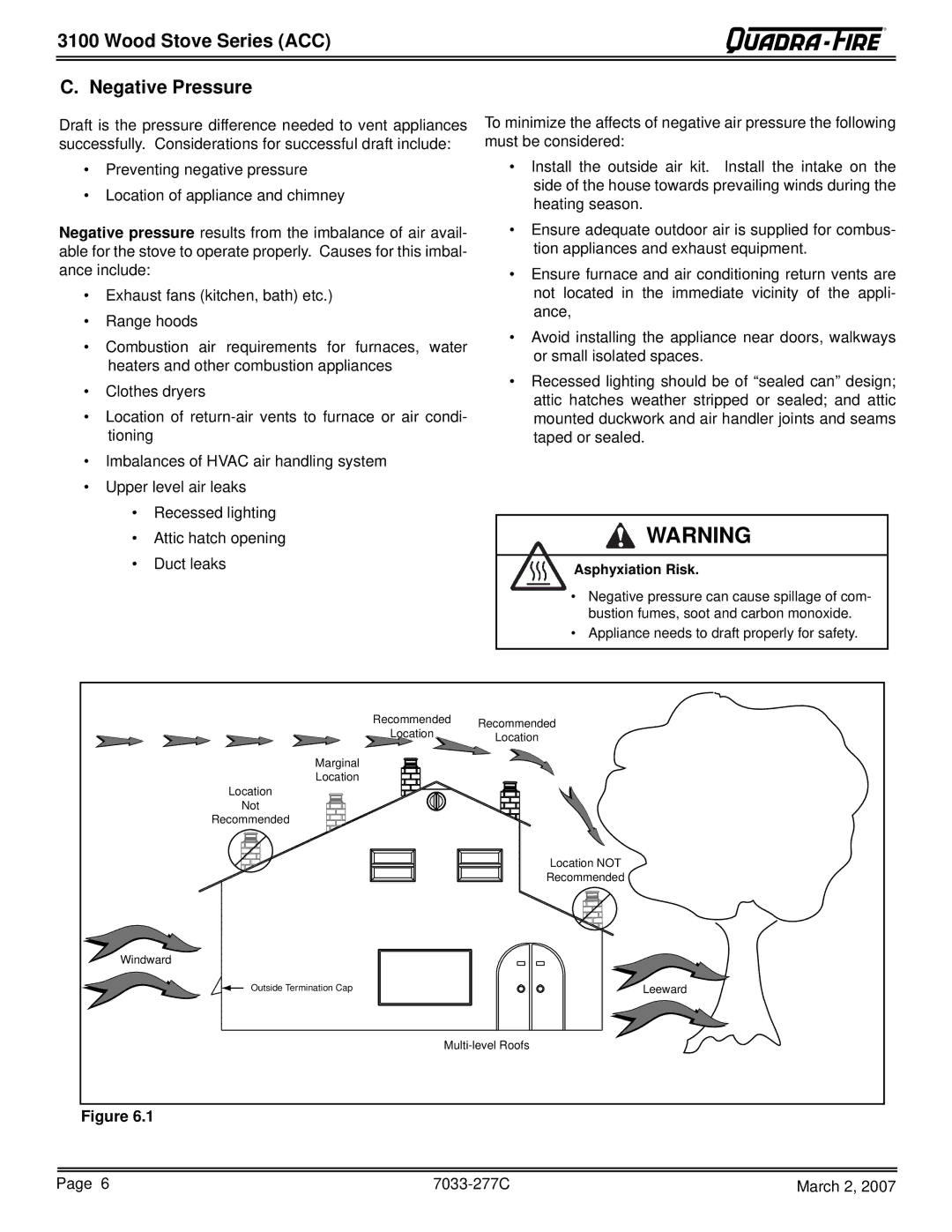
R
3100 Wood Stove Series (ACC)
C. Negative Pressure
Draft is the pressure difference needed to vent appliances successfully. Considerations for successful draft include:
•Preventing negative pressure
•Location of appliance and chimney
Negative pressure results from the imbalance of air avail- able for the stove to operate properly. Causes for this imbal- ance include:
•Exhaust fans (kitchen, bath) etc.)
•Range hoods
•Combustion air requirements for furnaces, water heaters and other combustion appliances
•Clothes dryers
•Location of
•Imbalances of HVAC air handling system
•Upper level air leaks
•Recessed lighting
•Attic hatch opening
•Duct leaks
To minimize the affects of negative air pressure the following must be considered:
•Install the outside air kit. Install the intake on the side of the house towards prevailing winds during the heating season.
•Ensure adequate outdoor air is supplied for combus- tion appliances and exhaust equipment.
•Ensure furnace and air conditioning return vents are not located in the immediate vicinity of the appli- ance,
•Avoid installing the appliance near doors, walkways or small isolated spaces.
•Recessed lighting should be of “sealed can” design; attic hatches weather stripped or sealed; and attic mounted duckwork and air handler joints and seams taped or sealed.
![]() WARNING
WARNING
Asphyxiation Risk.
•Negative pressure can cause spillage of com- bustion fumes, soot and carbon monoxide.
•Appliance needs to draft properly for safety.
Recommended | Recommended |
Location | Location |
Marginal |
|
Location |
|
Location |
|
Not |
|
Recommended |
|
| Location NOT |
| Recommended |
Windward |
|
Outside Termination Cap | Leeward |
Figure 6.1
Page 6 | March 2, 2007 |
